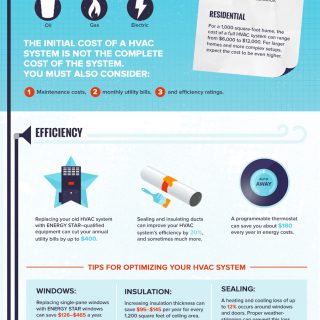Heat Pump Vs Furnace - Which Is The Better Home Heating Alternative For Your Home?
Heat Pump Vs Furnace - Which Is The Better Home Heating Alternative For Your Home?
Blog Article
Material Create By-Pearson Niebuhr
Several house owners know with furnaces, which warm homes with oil or natural gas and press hot air with ductwork. They are relatively economical and can give reliable heating even during a wintertime power outage.
Nevertheless, they use nonrenewable fuel sources and produce carbon monoxide and other air pollution. They likewise aren't as energy-efficient as a high-efficiency heatpump.
Cost
Usually, heatpump are a lot more cost effective to operate than heaters. They commonly make use of electrical energy and refrigerant to remove warmth from exterior air, and after that transfer it into your home. You can make use of less expensive electrical power prices during off-peak hours to better reduce your heating prices.
Unlike heatpump, gas or wood-burning heaters utilize burning to produce warm, emitting flue gases right into the environment that can be unsafe to your health and wellness. These heaters are likewise much less energy-efficient than heatpump, and their greater operating costs can accumulate over time.
Heating systems are much more complex than heat pumps and call for regular maintenance to ensure the proper feature of all parts. Despite this, they often tend to last longer than heatpump with a regular lifespan of 20 years or more. Nonetheless, you'll require to factor in the cost of gas, fuel oil or timber and the additional tools required for installment and procedure such as air ducts and ventilation systems.
Power Performance
Heat pumps have a higher power effectiveness score than heaters. These systems make use of electrical energy to scavenge warm from the air, also in freezing temperature levels. They can also eliminate excess warmth from the home throughout warmer months and recycle it to cool down the system. Service provider specialists can help you establish the very best model for your home on climate and resource power prices.
Furnaces melt fuel oil, propane, gas or various other types of nonrenewable fuel source to heat the air in the home. This air is after that dispersed through ductwork using a big fan. Heaters generate greenhouse gases and require regular upkeep and equipment upgrades to make certain risk-free procedure.
The largest benefit of a heating system is that it can be operated also in harsh winter months problems since it does not count on outside temperature levels to heat the air. Heaters likewise have a longer life expectancy than heat pumps and typically last 15 years. They can likewise be paired with twin gas choices, which pick the most efficient home heating alternative based on the climate.
Environment
Heat pumps work well in modest environments and use less resource energy than furnaces. Nevertheless, if your area is incredibly cold, you might require to buy a basic gas heating system instead.
Furnaces give warm, comfy warmth and commonly offer fast home heating to raise interior temperature levels. These systems can be used with a selection of gas types, consisting of gas, propane, oil or electricity.
They eat a lot more energy than heatpump-- up to 3x as much-- and call for ductwork that's pricey to install or retrofit. They're likewise extra costly to preserve, as they can cause air high quality concerns and generate greenhouse gas emissions.
If you're devoted to minimizing your carbon impact, a heatpump is a good option for your home. They have fewer greenhouse gas emissions than heating systems, particularly if you select an ENERGY STAR ® heatpump. Your local Service provider specialist can clarify the differences in between these two heating unit and help you make the most effective decision for your unique demands.
Individual Preferences
Heaters can be really power reliable when powered by natural gas, lp or oil, but they aren't as energy effective as heatpump in icy environments. task it chch can likewise be much more pricey to install, calling for gas lines and air flow systems.
However, furnaces often tend to need less maintenance, which can lead to reduced recurring costs. They generate fewer greenhouse gases and are much more trusted than heat pumps throughout extreme weather condition.
Electric heatpump are extra flexible in developing interior comfort because they can likewise serve as a/c unit throughout warmer months. They can be easier to maintain, needing just regular air filter adjustments and periodic vacuuming.
If you like the comfort of a single system that does it all, think about a hybrid heating solution that pairs a heating system with an electrical heatpump. These systems can automatically switch over in between the two home heating choices based upon your home's needs and temperature conditions, taking full advantage of performance and financial savings.